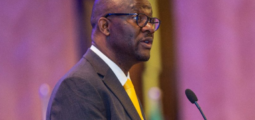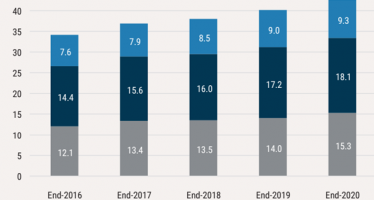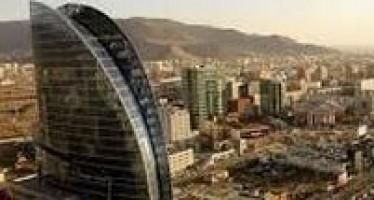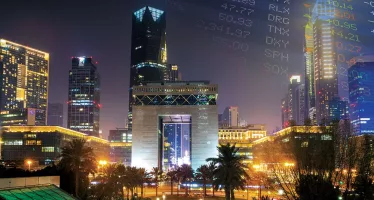AIM 2015 Focuses in FDI Based on Innovation and Technology Transfer to Achieve Sustainable Development
Foreign Direct Investment (FDI) projects are key means to continue the development of local skills and provide sustainable job opportunities. That is the premise of the 5th Annual Investment Meeting (AIM).
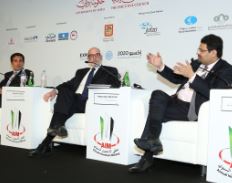
AIM Conference
The meeting, organised by United Arab Emirates (UAE) Ministry of Economy, is scheduled to take place from March 30 to April 1 at the Dubai International Convention and Exhibition Centre. The event is being held under the patronage of Sheikh Mohammed bin Rashid Al Maktoum, vice-president and prime-minister of the UAE and ruler of Dubai. This year’s theme is sustainable development through FDI-induced innovation and technology transfer.
The theme supports UAE’s national innovation policies as contained in the comprehensive National Innovation Strategy recently adopted by the government. This strategy aims to transform the UAE into one of the most innovative nations in the world within seven years. In its first phase, the strategy embraces thirty national initiatives for achieving a top rank in innovation. The push received a boost after the UAE was named the most innovative Arab nation in 2014.
While announcing the strategy, Sheikh Mohammed remarked that innovation is driven by effective institutions, strong policies, specialised skills, and an economy in which all sectors work together to discover new ways of conducting business. A flexible and creative economy, based on a national culture of innovation, is the fastest and most sustainable way to reinforce the UAE’s competitive edge on a global level.
“The UAE has displayed a far-sighted vision and values the concept that the continuous development of services and manufacturing should be based on technology and innovation in order to be sustainable.”
The Dubai strategy launched last December clearly lists the key drivers of sustainable development, the most important one of them being innovation.
Today in the UAE, annual investment in innovation amounts to some AED14bn (approx. €3.4bn) of which half goes to research and development. Spending on innovation is expected to rise significantly in the years to come.
From a broad perspective, sustainable development means developing the right mix of economic, social, and environmental policies for both the present and the future. However, foreseeing the future is not easy. This is where the importance this year’s AIM theme is visible as it relates to achieving sustainability with quality investments based on innovation and technology transfer.
A deeper look shows that we can spot synergies between developed and developing economies. Developing countries seek to benefit from the expertise of the developed world as seen in the successive waves of economic development of Western Europe.
The United Kingdom is a good example: it saw a gradual decrease in industries of steel and coal in the 1970s and 1980s. This led the UK to adopt a strategy based on FDI and focused on attracting people of specific skills. The solution adopted at the time actually addressed the high surge in the unemployment rates as it sought to equip huge numbers of redundant labourers with new and transferable skills.
With the gradual eastward expansion of the European Union and the priority given awarded to developing regions, Eastern Europe benefited by providing a more competitive and skilled workforce while Great Britain started prioritising the promotion of what became known as the knowledge economy.
In many cases, developing economies benefit from the expertise available in fully-developed countries. Many economies depend on innovation and technology transfer as key drivers of national policies. The concept of sustainable FDI is now more important than at any other time in history, because this approach not only attracts foreign investment but positively impacts host countries that now benefit from technology transfers through investment.
This topic is very important in the UAE, especially since the huge economic development seen in the past few years was largely driven by FDI.
Just as Britain experienced a drop in the competitiveness of its natural resources and manufacturing industries during the last decades – and as a result shifted its FDI policy – the UAE, which used to depend heavily on its oil reserves, moved towards a diversification of its economy. The country succeeded in becoming the trade, services, logistics, finance, and tourism hub of the region.
The UAE has displayed a far-sighted vision and values the concept that the continuous development of services and manufacturing should be based on technology and innovation in order to be sustainable.
The UAE has the ambition to become the leading technological hub for Europe, Middle East, and Africa. To accomplish this, the country needs the technology transfer that FDI can readily provide. The UAE FDI-driven economic strategy aims to attract higher quality and value-added investments. Policymakers are now more aware of the importance of developing local skills and nurturing them, not only through FDI, but also through proactive internal innovation.
AIM 2015 is working towards a sustainable economy and society, and also aims to blend technology transfer with local innovation. This is expected to trigger the use of FDI projects as a means to continue the development of local skills and providing job opportunities for coming generations.
Sustainable FDI and economic policies that encourage innovation and technology transfer through FDI will be the key topics discussed at the 5th AIM. The event is expected to attract more than 500 exhibitor companies from 140 countries. It will also display products, services, and projects from a wide array of industries. Exhibitors will represent sectors such as agriculture, aviation, commodities, trade, construction, education, research, energy, financial services, government, healthcare, telecom, legal, pharmaceutical, marine, real estate, tourism, and waste management.
You may have an interest in also reading…
China’s Renminbi Needs Convertibility to Internationalise
On July 21, the Official Monetary and Financial Institutions Forum (OMFIF) published its eighth annual report on Global Public Investors
The World Bank Called for Tighter Economic Policies to Restore Economic Stability
In its newly released Mongolia Economic Update, the World Bank said that the Mongolian economy is facing challenges from the
Access Granted: Simple Policies in a Complicated Financial Ecosystem
The Access Bank UK is a Nigerian success story that has passed the $100m milestone for three years in a











































































